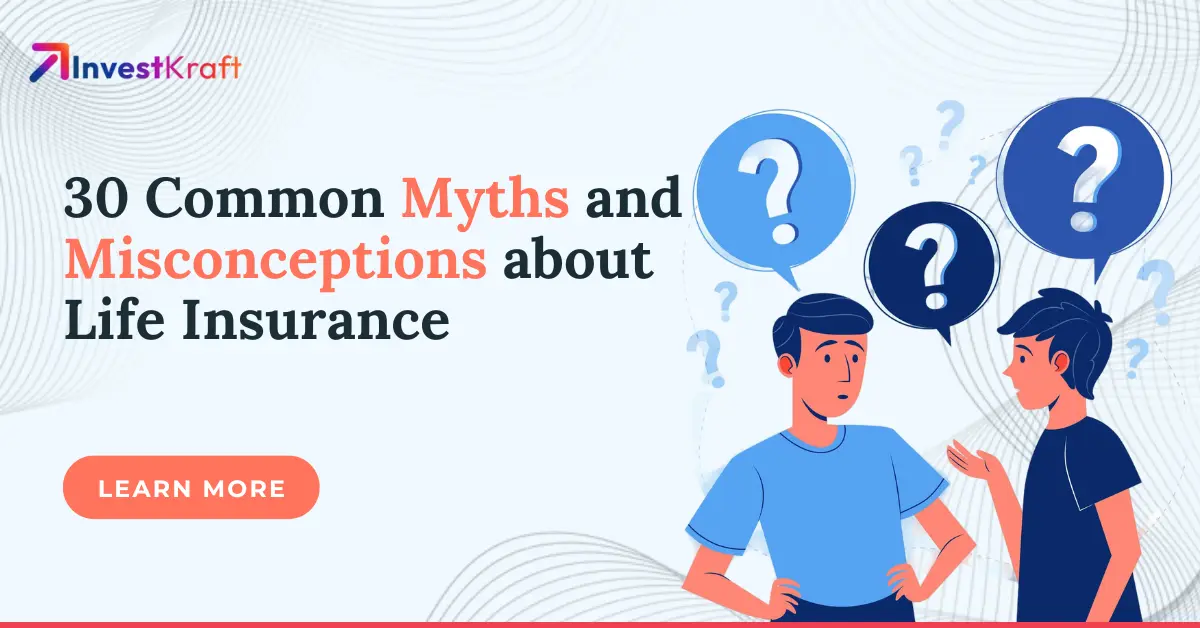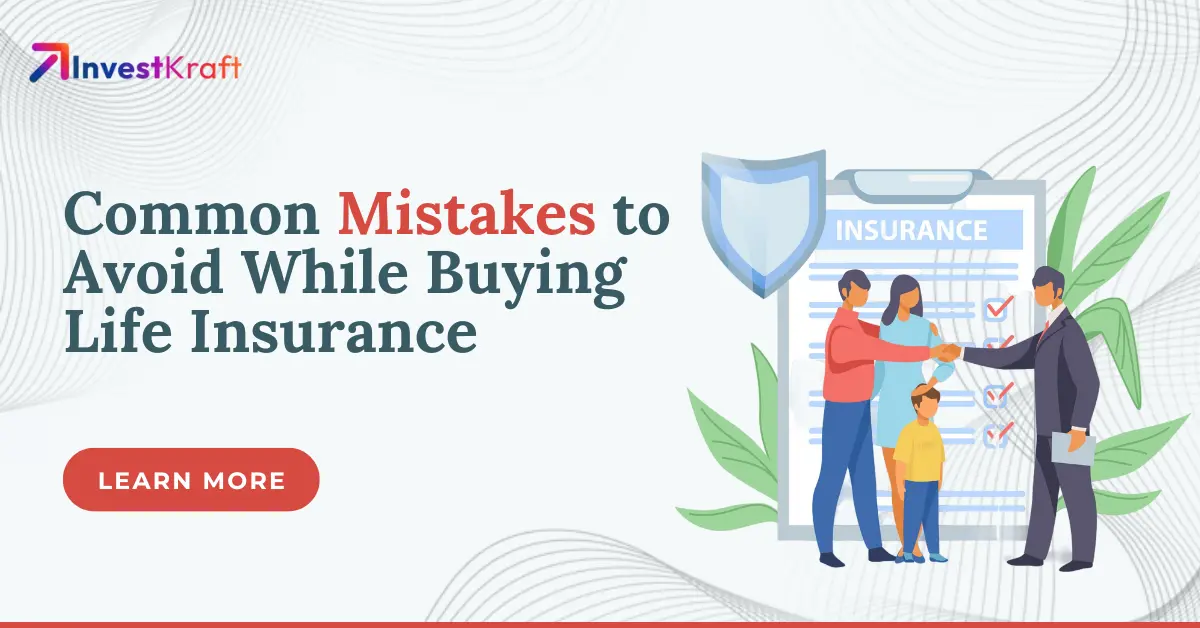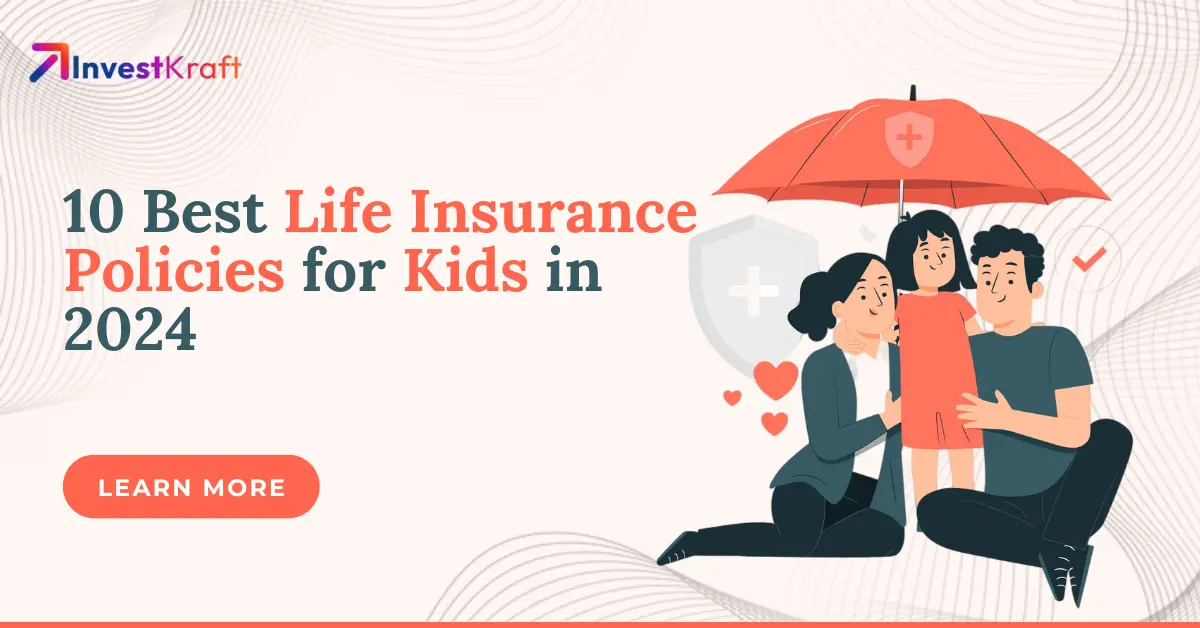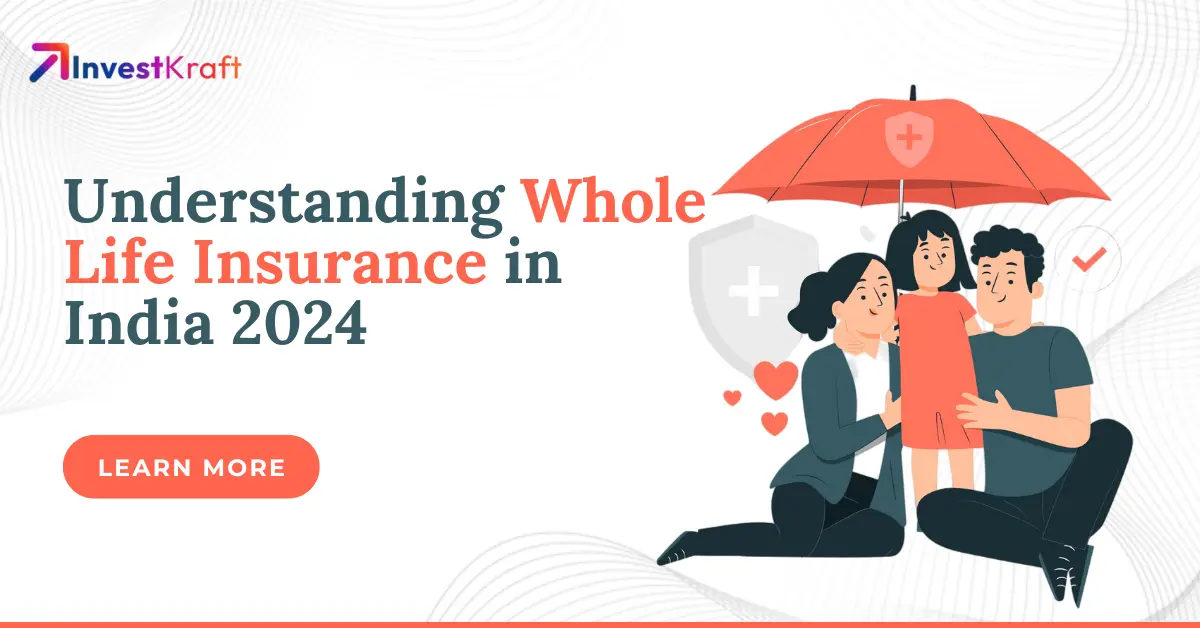How to Avoid Common Life Insurance Myths To Ensure Your Family’s Financial Security?

It is common for people to misunderstand life insurance, often thinking of it solely as a way to save on taxes. This can lead to not having enough coverage for you and your family when it is truly needed. It is crucial to thoroughly assess your family’s insurance needs and make informed decisions accordingly regarding life insurance policies.
How Does Life Insurance Safeguard Your Loved Ones?
A life insurance policy gives your chosen beneficiaries a lump sum payment when you pass away, typically free from income tax. The insurance company usually makes this payment within 14 to 60 days, without the delays often seen in will or estate settlements.
Why is there a Prevalence of Myths and Misconceptions Surrounding Life Insurance Policies?
Many myths and misconceptions surround life insurance, leading to people not obtaining the coverage they require. These misconceptions can be debunked by providing a breakdown of the most common misunderstandings and explaining why they continue to exist.
- Lack of Awareness: People’s lack of awareness regarding life insurance prevents them from actively seeking out information. This makes them vulnerable to misconceptions and potential risks.
- Marketing Focus: Insurance marketing often emphasizes the death benefits of insurance policies, yet it may overlook the broader scope of financial planning that insurance can support. It is important to consider the various aspects of financial planning that insurance can address beyond just providing for beneficiaries in the event of death. Taking a comprehensive approach to insurance marketing can help individuals understand the full range of benefits that life insurance can offer in managing their financial future.
- Negative Stereotypes: Life insurance can often come across as intimidating due to pushy salespeople and overly complicated products. As a result, many potential customers are deterred from considering life insurance as a viable option.
- Uncomfortable Topic: Avoiding conversations about death and financial security often leads people to neglect researching life insurance. However, it is important to address these topics to ensure a secure future for loved ones. While it may be uncomfortable, having these discussions and obtaining life insurance can provide peace of mind and financial protection for the unexpected.
- Inaction Bias: Many people tend to stick with the current state of affairs, even when it may not be the best option. This inclination can result in delaying important decisions such as acquiring life insurance, even when recognizing the potential advantages.
- Misinformation Spread: Myths about life insurance can persist because of misinformation spread by friends, family and media. These misconceptions can create an inaccurate perception of the value and benefits of life insurance. It is important to seek out reliable information to understand the true purpose and advantages of having life insurance.
- Lack of Financial Literacy: Without a solid grasp of personal finance, many struggle to understand the importance and role of life insurance in their financial plans.
- Generational Differences: Life insurance has evolved significantly over the years with changes in premium rates and increased product options. Older generations may have outdated beliefs about life insurance, while younger generations may have limited exposure to the topic. It is important to stay informed about the current offerings and opportunities in the life insurance industry.
- Rapid Product Evolution: Consumers can feel overwhelmed by the constant introduction of new life insurance products and riders, leading them to rely on potentially inaccurate information.
- Lack of Trust in Financial Institutions: Skepticism towards financial institutions extends to insurance companies, causing people to distrust life insurance products and their agents.
- Social Media Misinformation: Misinformation proliferates on the internet, especially on social media platforms where there is a lack of fact-checking and a tendency to rely on personal stories. This is particularly true when it comes to life insurance, as numerous myths and inaccuracies find their way into the online discourse.
- Fear of Medical Exams: Misconceptions surrounding life insurance often deter individuals from seeking coverage, as they believe it entails extensive medical examinations. However, it is important to note that there are alternative options such as simplified or guaranteed issue policies that do not require medical exams, albeit with certain limitations.
What are Some Common Life Insurance Myths and Misconceptions?
Misunderstanding about life insurance discourages people from recognizing its importance in financial planning. However, life insurance is a crucial contingency plan that safeguards your family from financial difficulties in the future. It can also provide additional income during retirement or when unforeseen circumstances impact your earrings. Here are some common life insurance myths and misconceptions that are prevalent according to our research.
Myth 1: Life Insurance is for Seniors Only
Life insurance is often seen as something for older people or those with dependents, but getting a policy at a younger age can be more cost-effective. Younger, healthier individuals typically pay lower premiums, providing financial protection that can evolve as life changes. For instance, it can help with milestones like getting married or starting a family.
Myth 2: Life Insurance Costs Too Much
Life insurance is often mistakenly thought to be very costly, but in fact, many people overestimate the expenses by up to three times. Different types of policies, such as term life insurance, can be surprisingly affordable. For instance, the average cost for a healthy 30-year-old’s term-life policy is around 10,000 rupees in India.
Myth 3: Life Insurance is Necessary Only if You Have Dependents
Life insurance is not just for those with dependents; it can also be useful for individuals without dependents. Even if you do not have someone relying on you financially, having a policy can help cover any debts, funeral expenses and other financial responsibilities. This can alleviate the burden on your family members during a difficult time.
Myth 4: Employer Life Insurance is Enough
Employer-sponsored life insurance may not be sufficient, especially if you change jobs and lose the coverage. It is therefore advisable to have a personal policy to ensure continuous protection.
Myth 5: Payouts from Life Insurance are Taxable
Life insurance payouts to beneficiaries are generally tax-free, offering essential financial assistance without any added tax obligations. Many individuals are under the impression that these benefits are taxable; however, this is usually not the case.
Myth 6: Unmarried People Do Not Require Life Insurance
Life insurance is often overlooked by single individuals, but it can be valuable for various reasons. It can help cover personal debts and medical expenses, as well as provide for future family needs if circumstances change.
Myth 7: Life Insurance Covers More Than Just Final Expenses
Life insurance not only covers final expenses but also provides long-term financial security by replacing lost income and covering ongoing living expenses for loved ones.
Myth 8: Savings are Enough
Life insurance is often considered a necessary safety net, despite the belief that savings alone can suffice. This is because unexpected events like medical emergencies or unemployment can deplete savings sooner than anticipated. By providing a guaranteed financial support system, life insurance offers peace of mind for dependents.
Myth 9: Life Insurance Purchase is Irreversible
Many people think life insurance policies are inflexible but the truth is that many policies can be updated to better suit your changing needs. You can make changes such as updating beneficiaries or adjusting coverage amounts to ensure your policy reflects your current circumstances.
Myth 10: Buying Life Insurance is Not Better than Investing
Investing is often touted as a superior strategy over purchasing life insurance, but it carries its own risks, especially in the face of unexpected events. A balanced approach that incorporates life insurance can offer essential protection while still enabling investing growth.
Myth 11: Life Insurance is Nothing More Than a Tax-Saving Tool
Some people see life insurance as mainly a way to save on taxes. While certain policies may have tax advantages, life insurance is primarily meant to financially protect beneficiaries upon the death of the policyholder. The tax benefits should be considered an additional bonus, rather than the main motive for buying life insurance.
Myth 12: Life Insurance is Only Available Through Agents
The misconception that life insurance can only be acquired through a traditional agent is quite common. However, several insurance companies now provide online platforms for researching and purchasing policies. This shift has made it more convenient for people to find suitable coverage without the need for an agent’s involvement.
Myth 13: Life Insurance is for Breadwinners Only
It is a common misconception that only the primary earner needs life insurance, but stay-at-home parents also provide valuable services such as childcare and household management. Insuring non-working partners can help the family maintain its standard of living in the event of an unexpected loss.
Myth 14: Life Insurance is Unnecessary If You Are Healthy
While some believe good health exempts them from needing life insurance, it remains an essential tool for managing risks and ensuring financial stability for loved ones. Unforeseen accidents and health complications can arise unexpectedly, making it wise to obtain coverage while in good health and enjoying lower premiums.
Myth 15: Life Insurance Benefits Family After Death
Certain types of life insurance policies, such as whole life or universal life, offer the unique benefit of accumulating cash value over time. This cash value can be utilized during the policyholder’s lifetime, serving as a valuable resource for unexpected expenses or investment opportunities. In addition to providing financial security for beneficiaries after the policyholder’s death, these policies offer policyholders a greater level of financial flexibility.
Myth 16: Delaying Life Insurance is Okay
Delaying the purchase of life insurance can result in increased premiums and potential complications related to health. It is recommended to secure coverage at a younger age to take advantage of lower rates and guarantee protection against future health problems.
Myth 17: Life Insurance Fits Everyone
Life insurance policies are often mistakenly believed to be identical and universally applicable. However, this is not the case as there are different types such as term, whale, universal and variable life insurance, each with their own distinct advantages. To select the most suitable policy, it is crucial to analyze personal financial circumstances and objectives for a better fit.
Myth 18: Life Insurance Premiums Stay the Same Forever
It is important to clarify that life insurance premiums may not remain the same indefinitely, especially with permanent life insurance. These premiums can increase as the policyholder ages or if the insurer’s costs rise. Therefore, it is crucial to thoroughly understand the terms and conditions of your policy to avoid any surprises later on.
Myth 19: You Can't Alter Life Insurance Policy After Buying
Contrary to popular belief, the insurance policies can be modified after they are purchased. Various adjustments can be made, including altering beneficiaries, increasing coverage or converting term insurance to permanent insurance. It is advisable to regularly review your policy to ensure it remains suitable for your evolving circumstances.
Myth 20: Life Insurance is Exclusively for Individuals with Families
Life insurance is not just for people with families. Even those without dependents may have financial obligations like student loans or credit card debt. Life insurance can help cover these debts and provide peace of mind.
Myth 21: Life Insurance is Needed by High-Income Individuals Only
Contrary to popular opinion, life insurance is not only crucial for those with high incomes. Individuals who have financial obligations, such as debts, mortgages or dependents, should also prioritize life insurance. This is because the financial consequences of losing a loved one can have an impact on families regardless of their income level, emphasizing the importance of having sufficient coverage for everyone.
Myth 22: Purchase Life Insurance Only If You Have Kids
Life insurance is commonly thought of when having children, but it can be beneficial in other situations. It can offer financial stability for a spouse, help settle debts, and support future family goals. Getting a policy early guarantees lower premiums and coverage during any shifts in family circumstances.
Myth 23: Life Insurance is Only for Death Coverage
Life insurance is not just for death benefits. Many policies nowadays also offer living benefits, like cash value accumulations that you can use while still alive. This can be helpful for emergencies, retirement planning or any other financial needs you may have.
Myth 24: All Life Insurance Policies are Equal
Life insurance policies are often misunderstood to be all the same when it comes to benefits and coverage. However, the truth is that there are significant variations in features, premiums and benefits among different life insurance products. To ensure the right policy is chosen, it is important to understand the differences between term, whole, universal and variable life insurance.
Myth 25: No Life Insurance with Pre-Existing Conditions
Contrary to popular belief, individuals with pre-existing medical conditions can still be eligible for life insurance. Although the application process might be more complicated, many insurance companies provide policies tailored to accommodate such health issues. It is important to explore different options and compare insurance providers, as there are companies that specialize in offering coverage for high-risk cases.
Myth 26: Insurers Do Not Pay Life Insurance Claims
It is a common misconception that life insurance companies often deny claims, but in reality, the majority of claims are paid out with a relatively low denial rate. However, it is important to note that claims may be denied if there are inconsistencies in the application or if the policyholder fails to disclose important information. Therefore, honesty during the application process is crucial to guarantee that claims will be honoured.
Myth 27: Medical Exam is Needed for Life Insurance
There are alternatives to traditional life insurance policies that don't require a medical exam. These policies may have higher premiums but are suitable for individuals who want to skip medical testing or face challenges in qualifying for standard coverage.
Myth 28: Life Insurance is Unnecessary If You Live a Long Life
Despite the belief that life insurance is wasted if one does not die young, it has multiple benefits. Apart from serving as a financial safety net, life insurance can also accumulate cash value. Even if the policyholder lives a long life, the coverage can still provide benefits to their estate or heirs.
Myth 29: Life Insurance can Only be Purchased at Specific Times in a Year
Life insurance can be purchased at any time throughout the year, unlike the misconception that it can only be acquired during specific enrolment periods. This flexibility enables individuals to obtain coverage based on their circumstances rather than being limited by a predetermined schedule.
Myth 30: Understanding Life Insurance is Challenging
Understanding life insurance can be challenging for many people due to its complexities. However, by seeking help from insurance professionals and utilizing available resources, individuals can gain clarity about their options. Educating oneself about life insurance is a valuable investment that can result in making well-informed decisions ensuring crucial financial protection.
Conclusion
Educating yourself about life insurance and seeking guidance from qualified professionals is crucial for ensuring your family’s protection for the future. Life insurance is not just about a simple tax benefit; it is a cornerstone of financial planning, safeguarding your loved ones from unforeseen circumstances. Do not let misinformation hold you back from making informed decisions for your family’s future. Empower yourself with the knowledge provided by articles debunking common myths surrounding life insurance.
Frequently Asked Questions (FAQs)
Q1: Is my salary enough for life insurance?
A: Yes, life insurance can be surprisingly affordable, especially for young individuals and in good health. With a wide variety of policy options available, it is possible to find one that perfectly aligns with your financial situation. Consider term life insurance, which offers death benefits without any savings component for those who specifically require coverage in that regard.
Q2: Can life insurance be used for anything other than death?
A: You can borrow or withdraw cash from certain types of life insurance policies, like whole life and universal life insurance. These policies have a cash value component that increases as time goes on. This means that if you need some extra money, you can access the cash value of your policy.
Q3: Why get life insurance if I supposedly live long?
A: Whole life insurance policies can be a good option for those looking for a combination of life insurance and an investment component. The cash value accumulation can serve as a source of funds for various financial needs, such as supplementing retirement income to pay for educational expenses. It is important to carefully consider the features and potential trade-offs of whole-life insurance to determine if it aligns with your long-term financial goals.
Q4: Do I need life insurance if my partner has it?
A: Your spouse’s life insurance may not be sufficient to meet all of your family’s financial requirements, especially if you have a dual-income household with significant expenses. By obtaining separate policies, you can ensure that your family is financially protected, regardless of who dies first.
Q5: Are life insurance payouts taxable?
A: Beneficiaries usually do not have to pay taxes on life insurance death benefits. However, there might be tax implications on the cash value component if accessed before death, so it is best to consult a tax advisor for specific guidelines.
Q6: Is the life insurance price locked in once I have a policy?
A: Term life insurance policies provide fixed premiums for a specific period while Universal life allows for adjusting coverage or premium payments, affecting the overall cost over time.
Q7: Are there any affordable alternatives to term life insurance?
A: Whole or universal life insurance policies are alternative options to consider if you want a savings component in addition to a death benefit. While term life insurance is typically the most affordable choice, these other policies offer the potential for cash value growth. When deciding on a policy, it is important to carefully evaluate your needs and budget.
Q8: Is life insurance a secure way to grow my money?
A: Life insurance provides a guaranteed death benefit but usually offers lower growth potential than the stock market. It is important to view it as a risk management tool rather than a primary investment. A diversified investment portfolio should be considered alongside life insurance to create a comprehensive financial plan.
Q9: Can I buy life insurance online without an agent?
A: Consulting with a qualified agent for life insurance can provide personalized advice, help navigate policy options, ensure you get adequate coverage and answer specific questions about your circumstances. It is important to have expert guidance to make informed decisions about your life insurance needs.
Q10: Does working in a high-risk profession disqualify me from obtaining life insurance?
A: Certain high-risk occupations may have higher life insurance premiums but it is still possible to obtain coverage. The insurance company will evaluate the specific risks associated with the job and set the premium accordingly.

Author: Abhik Das
Abhik Das is a versatile content writer with over 5 years of experience crafting engaging and informative content across diverse industries. His expertise spans the fields of ed-tech, pharmaceuticals, organic food, travel, sports, and finance.
Here's what sets Abhik apart:
Content Versatility: Able to adapt writing style and tone to suit various audiences and content needs.
SEO Proficiency: Creates content optimized for search engines, ensuring discoverability and organic traffic.
Deep Research: Conducts thorough research to ensure content accuracy and credibility across complex topics.
Engaging Storytelling: Captures reader interest with clear, concise, and compelling writing.
Abhik's diverse background empowers him to deliver insightful content across a wide range of subjects. Whether you're seeking engaging explainer pieces on the latest financial trends, informative guides to organic food choices, or captivating travelogues, Abhik has the expertise to craft content that resonates with your audience.




















